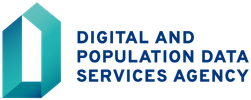The transfer of study attainment and health data between the Nordic and Baltic countries will be improved - The objective is to achieve a smoother everyday life between countries
This is evident in the current state survey prepared by a project led by the Digital and Population Data Services Agency, which will be published today on 30 November 2021. The project is part of the activities of Finland's Presidency of the Nordic Council of Ministers in 2021. The project aims to streamline the everyday life and mobility of people and companies across borders by promoting the exchange of data between authorities and other relevant actors in the Nordic and Baltic countries.
‘The Nordic and Baltic countries are in many respects the leading countries in digitalisation. People also move actively across national borders, for example, for studies and work. In these situations, everyday life becomes easier if key data is shared between the authorities and other actors in the countries. Such data includes study attainment, essential health and prescription data. The discoverability of legislative data of another country is also important in order to operate in that country as an entrepreneur, for instance. The Presidency project focuses on these three entities,’ says Minister of Local Government Sirpa Paatero, who will chair the Nordic Council of Ministers in 2021.
The current state survey highlights that data exchange already exists between some countries, for example on population, health and study attainment data. Examples of this include the Nordic Migration Agreement, exchange of prescription data between Finland and Estonia and the transfer of study attainment data between Finland, Sweden and Norway. ‘The exchange of data does not yet cover all Nordic and Baltic countries, and we want to contribute to this goal in the project,’ explains Torbjörn Sandell, Project Manager at the Digital and Population Data Services Agency.
‘The challenge often lies in the fact that even though the necessary digital infrastructure exists, the data systems in different countries do not yet work together sufficiently. The language and glossary used in the systems are not consistent and the data has been filled in differently. Some of the challenges also relate to different legislation in the countries. Resolving these issues requires determined co-operation between the countries and a clear common goal and strong will,’ continues Sandell.
Shared study, health and legal data makes everyday life easier
At the moment, the exchange of study attainment data, for example, is more digitalised in higher education institutions than in secondary education. Finland, Sweden and Norway participate in the EU-based EMREX system and exchange data about higher education studies completed in another country.
‘Most of the study attainment data is in a machine-readable format, which facilitates further development. However, the study attainment data often lack so called descriptive data, which makes it difficult to compare their contents,’ say Riikka Rissanen and Petteri Pulli from the Finnish National Agency for Education. ‘We hope to extend the EMREX system to all Nordic and Baltic countries and to have the use extended to include upper secondary level study attainment data,’ Rissanen continues.
Another issue that facilitates people's mobility is the transfer of key health and prescription data between countries. It improves patient safety, for example, if a person suddenly gets treated in another country or needs more prescription medicines.
‘Some European countries are in a situation where medicines prescribed in one country can be supplied in another country. In addition to Finland and Estonia, the exchange of prescription data between Finland and Croatia and Finland and Portugal is already in use. The greatest challenges in the transfer of health data are related to legislation, the non-interoperability of information systems and semantic interoperability. These can also be challenging within one country when several different information systems are used,’ says Minna Sinkkonen from the National Institute for Health and Welfare.
In finding data related to legislation, the most common challenge is that obtaining data on the legislation of other Nordic and Baltic countries now requires extensive language skills, because there are few translations of legislative texts. ‘One of the objectives of the project is to produce a legal data search tool that can be used by people in their mother tongue when they are, for example, working, studying or travelling in different Nordic and Baltic countries,’ says Head of Development Aki Hietanen from the Ministry of Justice.
The current status survey, which has now been published, brings together the current state of data mobility and serves as a starting point for further work on the project and for finding a common direction.
Read current state survey ”Baseline study of cross-border data exchange in Nordic and Baltic countries”:
https://pub.norden.org/temanord2021-547
What is the project about?
Finland will be the President of the Nordic Council of Ministers in 2021. At the beginning of the year, the Presidency project “World’s smoothest cross-border mobility and daily life through digitalisation” was launched. Its aim is to streamline the everyday life and mobility of people and companies across borders by promoting the exchange of data between authorities in the Nordic countries. The project will create an operating model and good practices to strengthen and enhance cross-border exchange of data. The project will last three years and will run from 2021 to 2023.
The Digital and Population Data Services Agency plays a key role in the implementation of the project. The Agency will lead the implementation of the Presidency project and co-ordinate the work of the project’s working groups. At the beginning of the project, a report on the current state of people’s everyday life across borders will be prepared. The main output of the project will be a joint operating model and good practices to strengthen and enhance cross-border exchange of data.
The Ministry of Finance owns the project and guides its implementation. The administrative branches of the Ministry of Social Affairs and Health, the Ministry of Education and Culture, and the Ministry of Justice are also involved in the implementation.
Keywords
Contacts
Digital and Population Data Services Agency, Development Manager Torbjörn Sandell, tel. +358 (0)295 535 299, firstname.lastname[at]dvv.fi
On study attainment data mobility:
Finnish National Agency for Education, Project Manager Riikka Rissanen, tel. +358 (0)295 331 059, firstname.lastname[at]oph.fi
On health data mobility:
National Institute for Health and Welfare, Development Manager Minna Sinkkonen, tel. +358 (0)295 247 032, firstname.lastname[at]thl.fi
On legislative data mobility:
Ministry of Justice, Project Manager István Rytkönen, tel. +358 (0)295 150 063, firstname.lastname[at]gov.fi
About Digi- ja väestötietovirasto
Digital and Population Data Services Agency (The Finnish Digital Agency)
Digital and Population Data Services Agency (The Finnish Digital Agency) promotes the digitalisation of society, secures the availability of information and provides services related to customers’ life events.
The Digital and Population Data Services Agency (The Finnish Digital Agency) sees to the maintenance of the Population Information System, which is the foundation for our society, and to the digitalisation of society. The agency’s tasks include civil marriages, name and address changes, guardianship and administrative guardianship, maintenance of the Population Information System, development of solutions for electronic identification, as well as the development and maintenance of centralised support services for e-services. E-service support services include the Suomi.fi Web Service, electronic messages from authorities (Suomi.fi Messages) as well as authorisation for acting on behalf of another party (Suomi.fi e-Authorization).
Digital and Population Data Services Agency was founded in 2020 and it operates under the Ministry of Finance. Agency was created when the Population Register Centre and local register offices were merged to form a single agency in 1.1.2020.
Subscribe to releases from Digi- ja väestötietovirasto
Subscribe to all the latest releases from Digi- ja väestötietovirasto by registering your e-mail address below. You can unsubscribe at any time.
Latest releases from Digi- ja väestötietovirasto
Datautbytet om flyttningar mellan Finland och Estland har inletts – 13 266 personer har adress i båda länderna17.12.2025 08:00:00 EET | Pressmeddelande
Det automatiska datautbytet om personer som flyttar mellan Finland och Estland inleddes den 2 december 2025. När någon flyttar från det ena landet till det andra meddelar inflyttningsstaten detta till utflyttningsstaten, som då i sitt eget befolkningsregister antecknar personen som utflyttad. Då upphör personens adress och hemkommun i utflyttningsstaten.
Suomen ja Viron välinen muuttotietojen vaihto käynnistyi – 13 266 henkilöllä osoite kahdessa maassa17.12.2025 08:00:00 EET | Tiedote
Suomen ja Viron välillä muuttavien henkilöiden muuttotietojen automaattinen vaihto käynnistyi 2.12.2025. Henkilön muuttaessa asumaan toiseen maahan tulovaltio ilmoittaa tästä muuttajan lähtövaltiolle, joka merkitsee henkilön väestörekisterissä maasta muuttaneeksi. Tällöin muuttajan osoite ja kotikunta lähtövaltiossa lakkaa olemasta voimassa.
Exchange of migration data between Finland and Estonia begins – 13 266 persons have an address in both countries17.12.2025 08:00:00 EET | Press release
Automatic exchange of migration data for people who move between Finland and Estonia began on 2 December 2025. When someone moves to the other country, the country of entry reports this to the country of origin, who then registers them as an emigrant. This marks their address and municipality of residence as expired in the country of origin.
Nu når myndigheternas digitala post bättre fram – du får en notifikation när du identifierar dig i myndigheternas elektroniska tjänster2.12.2025 07:03:00 EET | Pressmeddelande
Från och med 2.12.2025 får du en notifikation i samband med Suomi.fi-identifikation om du har ett nytt oläst meddelande i Suomi.fi-meddelanden. Notifikationen visas när du identifierar dig i statens, kommunens eller välfärdsområdets elektroniska tjänster. Ändringen bidrar till att säkerställa att mottagaren säkert ser viktiga myndighetsmeddelanden, såsom beslut, fakturor och tidsbokningsbrev.
Viranomaisten lähettämä digiposti tavoittaa nyt varmemmin - saat ilmoituksen kun tunnistaudut viranomaisten sähköisiin palveluihin2.12.2025 07:03:00 EET | Tiedote
2.12.2025 alkaen saat Suomi.fi-tunnistuksen yhteydessä muistutuksen, jos sinulla on uusi lukematon viesti Suomi.fi-viesteissä. Muistutus näkyy, kun tunnistaudut valtion, kunnan tai hyvinvointialueen sähköisiin asiointipalveluihin. Muutos auttaa varmistamaan, että tärkeät viranomaisviestit, kuten päätökset, laskut ja ajanvarauskirjeet, tulevat varmasti huomatuiksi.
In our pressroom you can read all our latest releases, find our press contacts, images, documents and other relevant information about us.
Visit our pressroom
